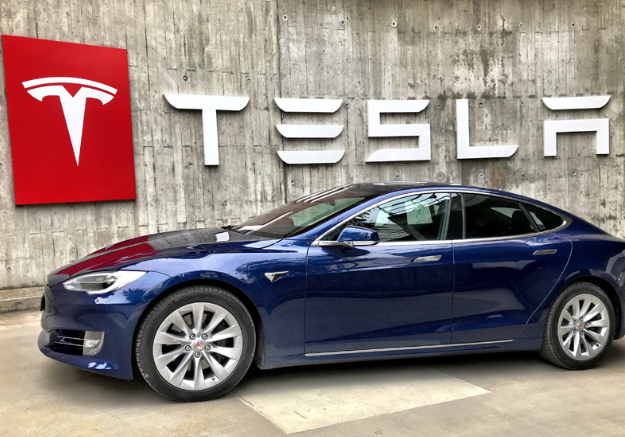
Tesla, as a leader in the electric vehicle industry, has always been the focus of investors. Although its market value has shrunk by nearly half recently, Tesla's stock price still seems expensive compared with its technology and automotive peers. Behind this is not only the market's optimistic expectations for its innovative technology and future prospects, but also many risk factors that are worth investors' deep consideration.
Looking back at Tesla's stock price trend, it can be said to be twists and turns. From the crazy surge in 2020, when its market value once surpassed Volkswagen and Toyota to become the world's most valuable automaker, to the recent continuous decline, Tesla's stock price is like a roller coaster. There are many reasons for this phenomenon. The economic recovery after the global COVID-19 pandemic has led to a shift of funds from technology stocks to other recovery concept stocks, the chip shortage has affected production, and the farce of Musk's acquisition of Twitter have all had an impact on Tesla's stock price. For example, since Musk announced the acquisition of Twitter, Tesla's stock price has plummeted by more than 35%, and its market value has shrunk by about $400 billion. In contrast, the Nasdaq Composite Index has only fallen by about 18% during the same period.
However, even after the sharp drop in stock prices, Tesla's stock price is still not cheap. Investment institutions such as Goldman Sachs have significantly lowered Tesla's target share price and maintained a "sell" rating. They believe that Tesla's current sales trends and profit margins may be disappointing, especially the production bottlenecks of Model 3 and the sluggish market demand. In addition, Tesla is also facing fierce competition from Chinese electric vehicle manufacturers and profit margin pressure from its own price reduction strategy.
Compared with its peers, Tesla's valuation is particularly prominent. Take the price-to-earnings ratio as an example. Although Tesla has technological advantages and market first-mover status in the field of electric vehicles, its price-to-earnings ratio is much higher than that of traditional automakers and peer competitors. This means that investors pay a higher price for each unit of Tesla's profit, and it is questionable whether this high valuation is sustainable.
From an investor's perspective, Tesla's high stock price is both an opportunity and a challenge. On the one hand, Tesla's innovation potential in the fields of electric vehicles and clean energy is huge, and it may bring rich returns in the future. On the other hand, high valuations mean greater risks, and once the market adjusts its expectations for future growth, the stock price may face the risk of further decline. Therefore, when considering investing in Tesla, investors need to be more cautious and fully evaluate its fundamentals, market competition environment and macroeconomic factors.
In short, although Tesla's stock price has experienced a sharp correction, it still looks expensive compared with its technology and automotive peers. While investors are chasing its high growth potential, they should not ignore the risks brought by high valuations. Rational analysis and long-term perspective are particularly important in investment decisions.

Driven by the Trump administration's push to relax financial regulations and the recovery of investment banking business, the market value of the six major banks in the United States has cumulatively increased by approximately 600 billion US dollars by 2025.
Driven by the Trump administration's push to relax financia…
On Christmas evening, U.S. President Trump posted on social…
According to multiple foreign media reports, the recent fin…
The middle class, once regarded as the cornerstone of Ameri…
On December 19th local time, the US military launched a lar…
The Boxing Day sunshine should have cast a false glow of pr…